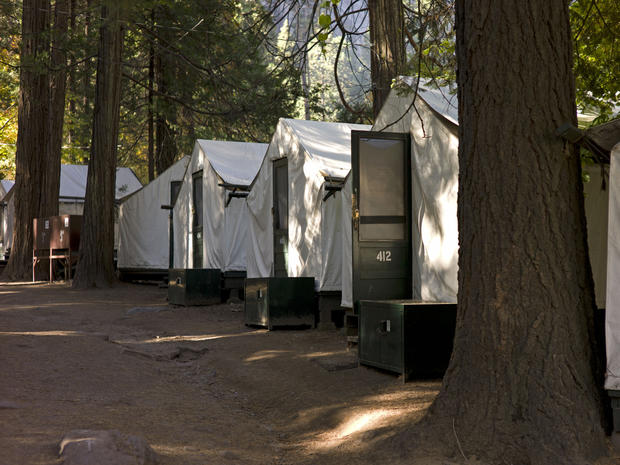Yosemite notifies 230,000 park guests of hantavirus risk
(CBS News) Yosemite National Park has extended its hantavirus warnings to more than 230,000 people who stayed at the park overnight since early June.
Did Park Service do enough to warn Yosemite visitors?
Plague, hantavirus, West Nile: How to avoid them
Yosemite visitor from W.V. becomes third person to die
Last week, the park had announced three guests had died and five others were infected with by the rodent-borne illness that may cause potentially fatal pulmonary problems. Seven of the cases involved guests at the "Signature" cabins in the park's historic Curry Village section.
The California Department of Public Health said the other case involved someone who stayed in several High Sierra Camps in a different area of Yosemite in July.
In a Sept. 12 statement, officials from the National Park Service said they were releasing a letter amid receiving requests from concerned people who had stayed at the park. The park service said the letter was intended to raise awareness about the disease and let guests know where they can find more information on hantavirus.
In the letter, Yosemite National Park writes, "Your recent overnight visit to Yosemite did not include a stay in lodging where the known hantavirus infections might have occurred; however, we wanted to take this opportunity to increase public awareness about hantavirus. We are contacting you as the reservation holder and we ask you to share the following information with the rest of your party."
A copy of the letter was published Wednesday on the National Park Service's web site.
Infection with hantavirus from contact with infected rodent's feces or secretions - most often from deer mice - can lead to a dangerous infection known as hantavirus pulmonary syndrome (HPS). Universal early symptoms include fatigue, fever and muscle aches while others may experience headaches, dizziness, chills and abdominal issues like vomiting and diarrhea.
Four to 10 days after infection, people may experience severe coughing and shortness of breath and the lungs can become filled with fluid. The disease kills about 38 percent of people who become infected, according to the Centers for Disease Control and Prevention.
Since the outbreak, the park has closed down 91 tents where most of the victims stayed, the CBS Evening Newsreported Tuesday.
Correspondent Bill Whitaker spoke to one of the survivors, Nicole Lapeyrade, who became ill with hantavirus after a July trip to Yosemite with her five children. Lapeyrade criticized the park's delayed response in giving warnings, saying she heard nothing from the park about the disease before the visit or after she reported the positive test. The park only issued warnings beginning two weeks ago.
"I'm disappointed about the park's lack of response," she said, "and the seemingly lack of concern for the public welfare," she said.
Kari Cobb, a Yosemite park ranger told the CBS Evening News that the park felt it took appropriate steps to notify individuals.
"It wasn't something that we posted in our most prevalent places," she said. "In the last 100 years, we've literally only had two cases aside from this cluster of eight. It wasn't something that Public Health thought was a major problem and it wasn't something that the park thought was a major problem."
(Watch Bill Whitaker's report below)

